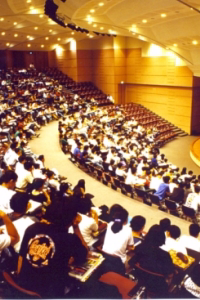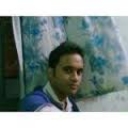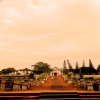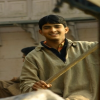
A prolonged period of inaction was finally brought to an end by a job offer letter and I found myself shifting domicile from Kolkata, the City of Joy, to 15, Rue Alfred Dehodencq, Paris. My short career saw me take up multiple roles like that of a bank clerk, radio presenter, and school teacher. But with this new designation of Third Secretary at the Embassy of India in Paris, my career had taken a substantial leap. I arrived at a short notice in this distant land hailed as the most romantic city of the world. Historically and architecturally rich, Paris, with its mixed population, has a lot to offer to the inquisitive onlooker. I deployed my own savings, borrowed some from my friends and relatives and arrived a week before my scheduled joining date. The week passed like a dream from the moment I entered Gare Du Nord in a high-speed train and took the subway to Hotel Mercure Opera Garnier. The hotel was spectacular. It looked like a French palace with typical Parisian decor and elegance. I went out and initially walked along Avenue de La Opera and reached Placea Marlaux. I was admiring the Palais Royal and almost inadvertently started walking towards the world famous museum, The Louvre. The present story has no connection with the facets of my travels throughout Paris but I do honestly feel it would be a sin if I don’t relay the spectacle I witnessed inside the museum. It is easy to forget a sense of time with the magnitude of artwork this museum has to offer. There are about 35,000 works of art! Obviously there is the enigmatic Monalisa, Venus De Milo and many others. I spent the rest of the week strolling across Jardin des Tuileries to Place de la Concorde, which is the biggest square in Paris. One can see The Obselisk from Luxor, the grand old Egyptian gift, there. The other side of the square is Avenue des Champs Elysees. This street is known in France as ‘La plus belle aveneue du monde’ or ‘the most beautiful avenue in the world’. This is the very place where Tour de France ends every year. Then there was the Arc De Triomphe, Petit Palais and Grand Palais, and the Hotel des Invalides. I then took the subway to Montmartre and Le Sacre Coeur. Montmartre and art have a deep relation since ages. In the olden days, it used to be the Mecca for many writers, poets, musicians and painters. This is the country of Alexandre Dumas, the land of Voltaire, the kingdom of Satre and Victor Hugo. However, my tour’s highlight was definitely the visit to the Eiffel Tower. The majestic iron lattice structure built in 1889 under the supervision of French engineer Alexandre Gustave Eiffel, the tower is divided in three levels. The first two floors can be reached by steps or elevator and the highest level can be reached only with the aid of an elevator. I also took a boat trip to ‘Batieux Parisiens’. An hour’s boat-ride on the Seine, this journey takes one along the several highlights of Paris – Musse De Orsay, Musse du Louvre, Notre Dame and Hotel de Ville. I relaxed on the boat and listened to the commentary the guides gave in different languages.
Now that I have satisfied the travel writer in me, let me get on with the story. I assumed office on the stipulated date, accommodated myself in the Embassy staff quarters and started working. It’s quite a paradox that although the Embassy deals with high-profile administrative issues but the mode of working inside the office is pretty routine and unidimensional. I was getting rather restless with the monotony till that one day. The Deputy Chief of Mission summoned me. I was a bit taken aback and not knowing the exact reason for the call, had butterflies inside my stomach. The DCM, Mr. Sushil K. Subramaniam, was a potbellied man who bore a mark of perpetual anxiety on his face. He folded his hands and placed them under his chin as in a state of brooding and began speaking in such a feeble tone that I would have almost failed to grasp what he was saying had I not been sitting so close to him.
“Listen, Mr.Chakroborty” he started and the anxiety on his face became more intense. “You are still relatively new to the system but I think you will be apt for the job.” He fidgeted a little and after a pause resumed,
“Do you know Dr. Raja Sen Sharma?”
“You mean the scientist? Yes I have read about him in a Bengali daily,” I replied.
“Astrophysicist. An astrophysicist of repute. Presently a visiting faculty of 19 universities all across the world. I have known Raja since 1994. He was the honorary member of UNESCO then and we went together to Brussels for a bilateral summit. A wonderful man. Smart, brilliant, enterprising but highly eccentric.” He paused again briefly and then continued, “I mean, he gets angry for no reason, has a bit of a dictator’s blood and can pick up a quarrel over the most trivial things. The last time he slapped an Indian dignitary in Dallas when the poor fellow asked him ‘Rabindranath! Who?’”
The DCM was fiddling with a paper weight. He then looked at me and continued, “The European Astronomical Society (EAS) has hosted a meet in seven countries including France and the conference tag is ‘A View from the Top’. Eminent speakers of the astronomical field are going to tour different places and deliver lectures on the topics. Richard Bernett will be touring all over Germany this time, Laura Williamson will be in Italy, Sir Timothy Hammond will be in Denmark and likewise Raja will be in France. It’s a great honour for India, you see, although he has made LA his home these days.”
“And I have to make all the necessary arrangements, right?” I asked.
“Not only that. You will be his shadow for the next ten days. The program will be held in different cities all over the country. Rennes, Bordeaux, Nantes, Toulouse, Lyon, here in Paris and finally the curtain call will be in Marseille. You will accompany him in a specially designated car where a chauffer will be provided to you 24*7. I will take care of the logistics and the staying arrangements, venue bookings and guest invitations. You will be in direct contact with me. You don’t need to report to anybody else. But make sure nothing undesirable happens.”
I nodded in agreement and the DCM handed over the schedule and all the other necessary documents along with the warning that the PMO back in New Delhi had taken a keen interest in the initiative and we had to do everything right. I understood that the task handed out to me can simply be termed ‘Mission Taming the Tiger’.
I met with the driver that very day and I was allotted the cab three days prior to Dr. Raja’s arrival. The driver, Hari Prasad, was a 30-year-old, dark-complexioned man who was only three when his family migrated from India to France. He was a spirited soul; very talkative and his buoyant spirit may have been further accentuated when he got the opportunity to have someone in the backseat whose age was similar to his. His incessant verbal spree sometimes miffed me but I must confess that he reminded me of India in this far away land. We would often converse on diverse topics like family, music, Indian films, our childhood and many other things. Hari was deeply interested in India, although he didn’t have any first-hand memories of it. “I learned about my country from my grandmother’s stories and old photo albums which my parents kept as one of those rare possessions which they could carry from India. My parents had an intercaste marriage, Sir, and the neighbours were causing a lot of trouble. We couldn’t stay in peace. As soon as my father found a job, we migrated,” his eyes turned moist. Hari was very fond of Bengal. He had heard a lot about Kolkata, Tagore, the football rivalry between the East Bengal and Mohun Bagan clubs, Eden Gardens and even Satyajit Ray. “There is a fine Bengali restaurant in Couter Square where I had a mouthwatering hilsa dish and one of the finest desserts in the world. Someday I will take you there,” he remarked joyfully. Hari and I became good friends; the basis our friendship was a connect with our Motherland.
We went to the Charles de Gaulle Airport on the expected date to receive Dr. Raja. A short, well-built man with cropped salt-and-pepper hair, sporting a round-necked t-shirt and cotton trousers was walking hastily towards us. I was carrying a bouquet of flowers and Hari was standing beside me holding a placard bearing the physicist’s name. I had seen the man’s photograph in the immigration documents and was able to recognize him instantly. He wore gold-rimmed, high-powered glasses and his gait had a sense of urgency. He stopped in front of us and inquired, “Indian Embassy?”
“Yes. Welcome to Paris, Dr.Sen Sharma. Bienvenue,” I replied in a dramatic tone.
He accepted my flowers and greetings and walked with greater agility towards the exit gate. I was constantly observing him. He was thoroughly professional. We sat inside the car and he asked me about our schedule, staying arrangements and other issues. He also enquired about his long-time acquaintance and remarked gleefully, “I knew Sushil was not going to come. He is tired of listening to expletives from me.” I had previously warned Hari to remain quiet in the physicist’s presence but I noticed that he was keenly studying our guest.
“These EAS authorities are dimwits. They have arranged seven summits in seven cities all on the same topic. A lot of time, effort and money could have been saved if they would have arranged a National Conference. Nonsense! I don’t know why the UCLA’s committee acceded to their request. A bunch of fools,” he remarked scornfully.
He was exuberant every time he spoke, which he often did with a lot of emphasis and conviction. His topics ranged and changed within minutes from cosmology to quantum mechanics, from institutionalized education to God, from religion to movies, from terrorism to Shree Ramakrishna Paramhansa and everything that is under and probably beyond the sun. I noticed a childlike spirit in him which not only earned him a lot of respect but also made him a bit intimidating.
His first conference in Rennes won him a lot of accolades. I struck a nice chord with Dr. Raja and he was also beginning to enjoy my company. We then travelled to Bordeaux, Nantes, Toulouse and Lyon and Dr. Raja enthralled his audiences everywhere. We then came back to Paris, where he had another successful conference. His personality started growing on me. The ‘Professor’, as Hari and I fondly called him, candidly spoke about his personal life, childhood and even teenage crushes. I reciprocated too and on the Professor’s encouragement, Hari too joined our conversations. I will never forget the day when the Professor and I jointly recited the famous Bengali poem “Banglar mukh ami dekhiachi” (I have seen the face of Bengal) by the banks of the Garone in Toulouse during a halt.
The last conference was impending. We headed off early towards Marseille, France’s largest city on the Mediterranean Coast and the largest commercial port. We reached early morning and I went to check the arrangements immediately. This venue was a bit unusual. It was the famous Opera, one of the city’s prime tourist attractions. History says that in 1919, a fire almost completely destroyed the house; leaving only the stone colonnade and the peristyle from the original facade. I checked the venue and went back to the hotel to have lunch. The Professor and Hari were waiting for me at the table. Their faces looked pale and plates of Bouillabaisse lied untouched. I took a look at Hari and could clearly decipher an utmost concern. The Professor’s face had turned grave and his vision was ruefully centered on the food laid out in front. I asked, “What’s the matter? Is there a problem?”The Professor didn’t reply and his face turned paler. Hari hesitantly remarked that Dr. Raja had fever the previous night and from that morning on, he had developed a sore throat because of which he was not able to speak properly. I looked at the Professor with concern and he uttered feebly, “I am hardly able to speak.”
We finished our lunch silently and went back to our rooms. The Professor looked dejected and was apologetic for having let everybody down at the eleventh hour. I tried to console him and was about to postpone the meet. Dr. Raja caught my arms firmly and in a faint tone replied, “Don’t do this. I will manage. I can’t extend my stay here. I need to go back to LA by tomorrow.” He was gasping when he uttered the few words but I was adamant. I would not allow him to speak in that condition. He clearly needed voice rest. Hari was waiting around the corner. He was feeling sorry for us too. As I was about to call Mr. Subramaniam, Hari interrupted, “Sir, I want to say something.”
“What?” I asked.
“I have followed every speech of the Professor closely. He had to tirelessly deliver the same lecture again and again. My question is: is he going to deliver the same speech here too?”
The Professor nodded in the affirmative.
“Then,” Hari said with a pause “just for one day I can act as the Professor and deliver the speech on his behalf.”
“You?” the Professor and I jointly exclaimed.
“Yes, I.” he said with an assuring confidence. “I can impersonate the Professor. See, these local people have not seen him. If I tell them I am Dr. Raja Sen Sharma, how will they be able to verify it?”
“That’s fine. But when you will go on stage and act like an idiot, they will surely kick you out!” I said agitatedly.
He smiled mischievously. “That won’t happen. I can deliver the exact speech from beginning till the end and no one will be able to figure anything out.”
We expressed complete disbelief over his claims. Hari begged for a chance to prove himself and we granted it to him. He closed his eyes for a minute and after clearing his throat began delivering the lecture. His body language exuded refined confidence, his demonstrative gestures claimed superiority over the eager audience and from the moment he uttered the words, ‘Thank You for inviting me to speak at this meeting....,’ he was a different man altogether. We were watching him with perplexed muteness. He paused whenever it was required, displayed a subtle tone of humour where the original speaker intended to, his tone turned critical where it should and for a moment I almost forgot that this man was our chauffeur and not some high-profile academician from an esteemed institution. He gave a 40-minute speech flawlessly and this humongous acting talent and memory was appreciated by us as discreetly as possible.
We went to the Opera. Hari intentionally parked the car a bit away from the venue. The Professor had given Hari his suit, which the chauffeur donned with élan. The glasses were also part of the ‘look’. I took charge of introducing Hari to some of the esteemed guests with a sense of palpitation. I was hoping that a known face doesn’t crop up and I was afraid that Hari would goof up. But he was perfectly natural and proved me wrong. Dr. Raja took a seat in the last row and tried hard to gel with the crowd as much as possible. But his eyes were following his benevolent impostor closely every moment. I checked in the Internet to find out whether a photograph of the Professor was available, but to our amusement there was only one and that too was a group picture. Hari walked up the stage with measured footsteps displaying an air of a commander. The performance which we witnessed inside the hotel room was replicated and the audience remained captivated for the entire span of the lecture and as soon as Hari concluded the speech with the words –
“We must never lose sight of that sense of purpose, that feeling that what we are doing along the way in this great journey is part of something much greater than ourselves and our individual interests. So, let us all hang together. Thank you” – the audience erupted with thundering claps of applause. The Opera theatre of Marseilles evidenced probably one of the greatest con acts ever in the academic world. I glanced backwards and noticed a certain degree of relief on the Professor’s face. Hari was about to alight from the stage after rounds of thanksgiving when a young lad raised his hand among the crowd.
“Yes, gentleman?” Hari asked.
The lad stood up. He had freckles on his face but was probably in his early twenties and in a tone of paying obeisance uttered, “Sir, I am Samuel Phillips Dejoe. I am delighted to be here and your thoughts are indeed awe-inspiring. I have followed the latest revelations in the field of astronomy and astrophysics. You have indeed thrown a lot of light on complex aspects but I could not understand one thing. You have advocated the concept of ‘One Source’ throughout your works and also supported the same with metaphysical statements. In your speech too you asserted that an amount of an electron’s mass, electric charge and spin is exactly the same anywhere. But then how would you account for the theory about quantum fields giving birth to elementary particles; I mean the Quantum Field Theory? How would you account for the virtual particles? Physicist Richard Feynman, who shared the Nobel Prize for the quantum field remarked in jest, ‘Created and annihilated – what a waste of time.’ What would you term it? Source energy loss?”
There was a pindrop silence among the crowd and my heart beat faster may be at quantum speed. This was the end. Our little act was over and we were caught. I felt like crying. I shouldn’t have agreed with Hari. He was after all a taxi driver. How did I rely on his intellect? How did the Professor agree? I took a look backwards. The Professor was staring deep into my eyes with a look of despair. Everything was over!
Hari who was till now unperturbed became a bit shaky. This young chap had hurt his confidence badly. But I found him trying to regain his confidence. He again held the microphone up and began speaking, “I do appreciate your query. But you know, science itself is a puzzle which we need to solve everyday. Whatever you have said does not contradict my opinion, rather it establishes it firmly. Had you been resolute in finding out the answer yourself, your imagination would have teleported you. I mean it’s such a trivial doubt. I don’t feel I should waste my valuable time over this. Learn to think deep. It’s such a simple thing.”
Then he did something which shellshocked me. He pointed his right arm towards the farthest row and proclaimed loudly, “It is actually so simple that even my driver will be able to explain it. Hari please come up on stage and address this gentleman’s doubt.”
The man hailed as Hari, who was infected with a sore throat rose quietly and walked towards the stage. Till now it was the assuming of an identity by only one person, but now it became a double switch of identity. The new Hari took the microphone and humbly started to address the lad in front of the entire audience.
“Pardon him a bit. He has a bit of a sore throat you know,” the real Hari remarked. The ‘new’ Hari resolved the young man’s query and the awestruck audience gave a thunderous applause.
We were returning back to the hotel. Hari was driving in a joyous mood. Professor and I were seated in the backseat. We didn’t utter a word for almost 15 minutes and the silence was finally broken by Dr. Raja. “They say, all is well that ends well. Well, I would rather say the famous Bengali proverb – Rakhe Hari, Mare Ke? (If God or Hari protects you, who can harm you?)”
The group broke out in a complete laugh riot.
About the Author







Comments